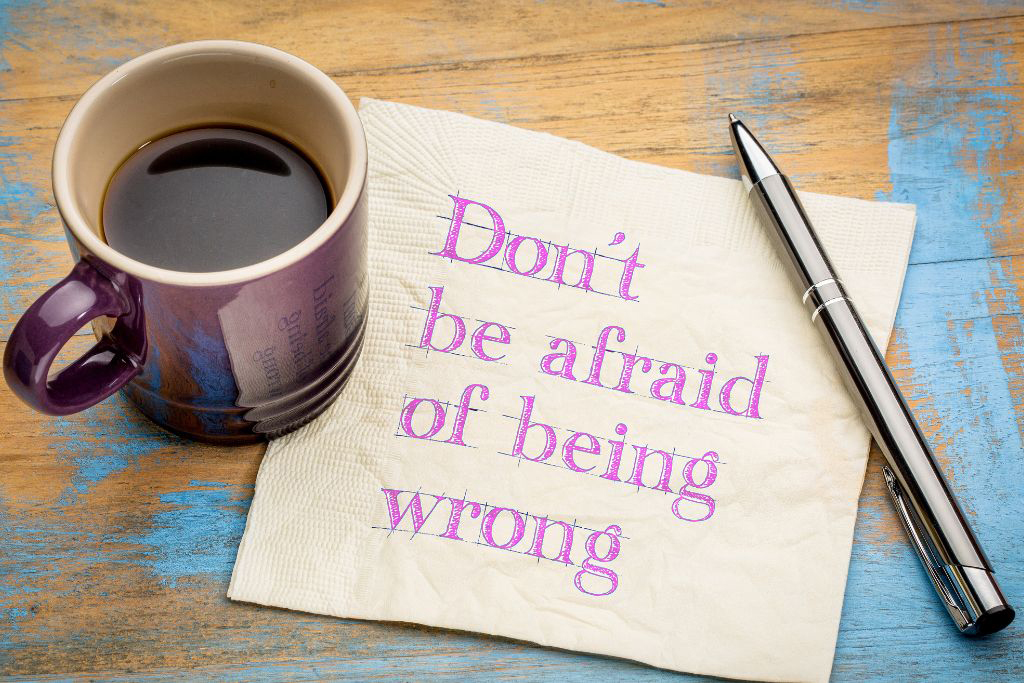Bertrand Russell, the great philosopher once said, “the fundamental cause of the trouble is that in the modern world the stupid are cocksure while the intelligent are full of doubt.”; as true today as it was in the 1930s.
People generally fall into one of two categories; most people fall into the category of over-estimating their own knowledge, thinking that we know best or better that someone else. Think of a time you were in a heated conversation with someone, where you focused more on waiting for them to finish up what they were saying so you could jump in with your opinion, they were wrong and you were right and you were intent on proving it. The other category is for those who underestimate their own knowledge and skills, despite the fact they may have more knowledge than others. Just think of a time where you may have been suffering from a degree of imposter syndrome, a psychological occurrence in which someone doubts their skills, talents and accomplishments and has a persistent internalised fear of being exposed as a fraud.
Organisational psychologist Adam Grant provides a deeper look into this subject in his book, Think Again, which outlines some brilliant ways in which we can overcome our own overconfidence and become lifelong learners, open and curious about the world around us and the ideas and opinions of others. As Gant states; “In our daily lives, too many of us favour the comfort of conviction over the discomfort of doubt. We listen to opinions that make us feel good, instead of ideas that make us think hard. We see disagreement as a threat to our egos, rather than an opportunity to learn. We surround ourselves with people who agree with our conclusions, when we should be gravitating toward those who challenge our thought process. The result is that our beliefs get brittle long before our bones”.
Grant explains that when we engage with others, it is often based on the underlying belief that our opinions are infallible, and we already know everything there is to know about the topic. In effect, we often slip into the mindset of one of three distinct professions;
- Preachers: when the unwarranted strength of our convictions compels us to convert others to our way of thinking.
- Prosecutors: when our single focus is to discredit the beliefs of others.
- Politicians: when we actively seek to win favours from our chosen constituency.
The problem with this way of being of course is that we remain closed off and justified in our own limited knowledge. It is the complete opposite of a growth-mindset. We are not open to learning anything new, and our intention when interacting with others is to promote and dig even deeper into our own convictions.
The interesting thing is, we are all too aware of this scenario in others, yet lack the self-awareness see such limiting mindsets in ourselves. If the majority of us are not aware of the extent of our own ignorance, how can we change? Here’s three ways;
Don’t attach your sense of self to any set of beliefs:
Grant outlines the first practical way in which to do this, which is to detach your sense of self from any specific beliefs. If you identify with a specific set of fixed core beliefs, you will be far less likely to change your mind in the face of new evidence or better reasoning. Do the opposite by grounding your sense of self in mental flexibility. Be open to new and better ways of thinking about things. Take pride in the fact that you’re willing to change your mind and update your beliefs accordingly.
Get comfortable with being wrong:
Think of all of your beliefs as provisional hypotheses and then seek to disprove them. In the process, you may find that you become more knowledgeable by being wrong. This is a growth-mindset that allows you to learn much deeper knowledge and remain curious about the world.
If you have already detached your sense of self from a particular belief then you can learn to enjoy being wrong, because being wrong is equated with learning a better way or a better belief about something. People with this growth-mindset have confidence in their ability to learn and unlearn beliefs that are outdated or are no longer serving them. Their confidence lies in their ability to change and adapt rather than in the strength of their convictions.
Be a scientist:
Rather than being a preacher, prosecutor or a politician, be a scientist. The scientist mentality is built on the foundation of truth-seeking and continually updating beliefs and hyptheses in the process.
The ‘scientist’ compels others to question their own beliefs as well. Leaders who want to keep their team open to new opinions and ideas should focus on being ‘scientists’ as the mindset is contagious. When a ‘scientist’ speaks to someone trapped in their own prison of being right, it exposes the stubbornness and the unwillingness to learn. It can have the effect of softening the recipient as they don’t need to fight so hard to push their opinions and ideas without any great resistance. Instead, it gently leads them on a path of open-mindedness. Scientist leaders can actively encourage others to be life learners and better thinkers by reframing their own beliefs and seeing other possibilities on how to see and do things. None of us have or will ever reach our capacity to keep learning.
Staying curious about the world is more important than ever with an increasingly uncertain future. If your leadership team could do with my help, please get in touch today, I’d love to hear from you
